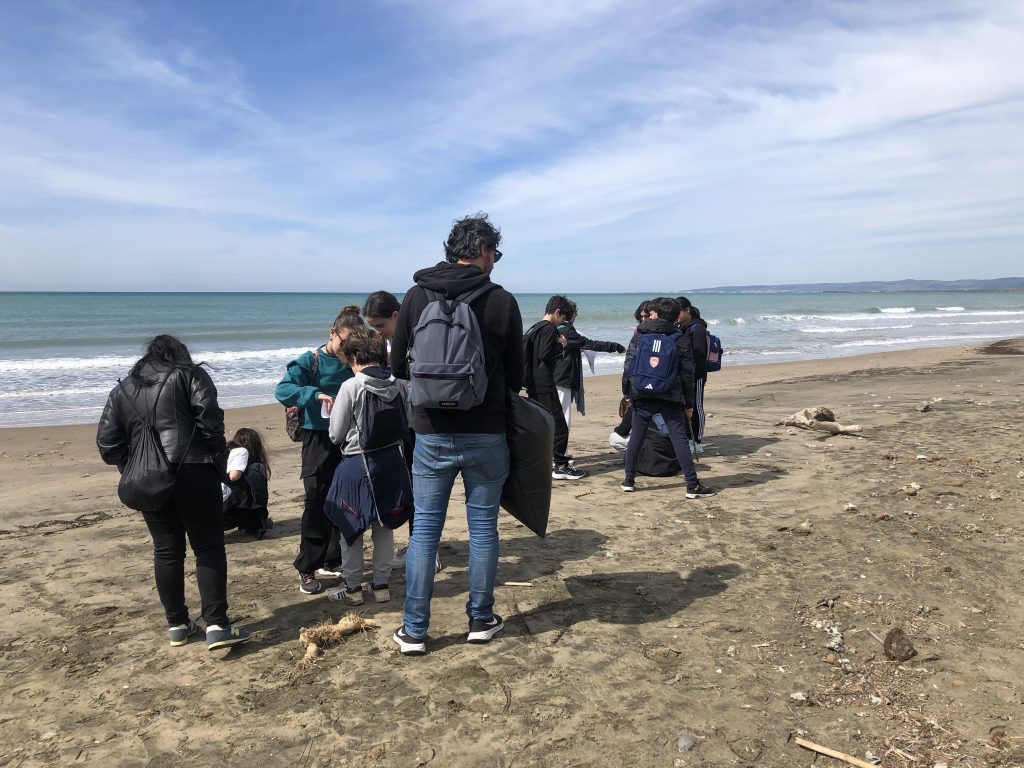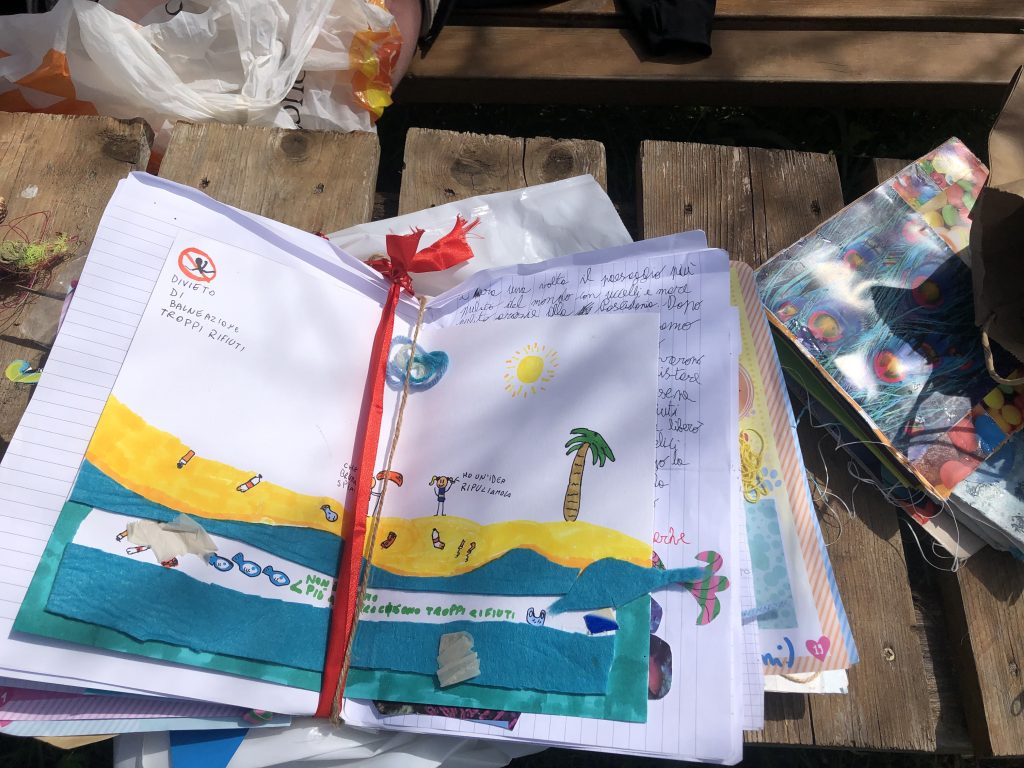On March 25, 2024, the middle school class of I.C. Guicciardini in Rome, Italy, engaged in outdoor activities at the Long-Term Ecological Research (LTER) Station ‘Torre Flavia’ in Lazio. This excursion deepened their awareness of the local environment. These activities were oragnised as part of the SLEs EU project, in which APRE (the Agency for the Promotion of European Research) is a partner.
Researchers from the Italian Institute for Environmental Protection and Research (ISPRA), together with the Reserve Management Chief Dr. Corrado Battisti, organised a walk through the Torre Flavia LTER and showed how the management of the protected area is conducted daily.

The students were involved in several experiential activities:
- hands-on management activities: exploration of the reed beds in search of waterbird nests, fishing for mosquitofish, shrimp and crayfish collection, cleaning and litter collection (plastic);
- sensory walk on the beach: observation of the organisms on the beach and/or their traces using all 5 senses, brief focus on Posidonia deposits and/or the Ecological Beach poster.
The day was a valuable time for teachers and students to sediment prior knowledge and to be actively involved in sustainable management of protected areas, with a special attention to the wetlands and marine coastal environments.

Look at the video illustrating the incredibile activities undertaken during the day!
Hear from Alice Rotini, ISPRA, Marine Biologist
Today we came here to “Torre Flavia” LTER (Long Term Ecological Research) Station, which is a reserve managed by the Metropolitan City of Rome Capital, and whose management also greatly involves local citizens. That is why every year it is included in environmental education activities on the theme of Ecological Beach. We take our kids to visit this place to learn about this approach of managing a protected area and to be actively involved in the activities that are planned for the management of the reserve such as, for example, beach cleaning, migratory bird monitoring and Kentish plover nests’ protection activities.
Today we are here with Class IA of IC Guicciardini, which is implementing the pilot project as part of the SLEs project in which ISPRA, along with other research centers, is collaborating with APRE. We chose to bring the children who were involved in one of the environmental education activities, also related to the issues of sustainability and circular economy, right here in the field to close the circle a bit. We are here today to directly experience what it was previously explained in the classroom, to make sure that this experience and this active involvement also makes them feel an active part of the environmental conservation process, even in their daily lives. The added value of bringing kids to the field, as well as involving them in practical activities, is to show them, by involving both reserve staff and researchers, what are the possible career outlets for those involved in nature conservation, the activities they are involved in, and to stimulate curiosity about scientific subjects and what is the researcher’s profession.
What is the impact of these activities on local communities and the local area?
Working with kids is is essential to raise awareness of the most important part of our society because they are our future. When we work in the classroom we always say that we are telling about the Ecological Beach, a different model of beach management, because they will be the beach managers of the future, the mayors of the future, the fishermen of the future therefore the people who will then have to make choices and we hope that part of those choices will take into account the information gained from these experiences.

